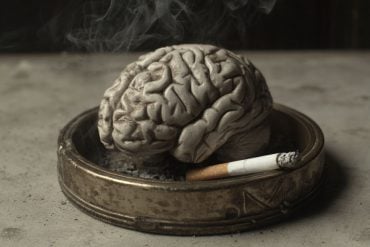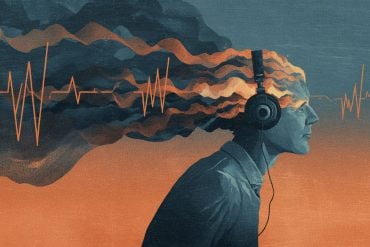Summary: Shorter sleep duration causes people to react more emotionally to stressful events and find less joy in positive events the next day. Following a good night of rest, people’s reaction to positive and negative events improves dramatically.
Source: University of British Columbia
New research from UBC finds that after a night of shorter sleep, people react more emotionally to stressful events the next day–and they don’t find as much joy in the good things. The study, led by health psychologist Nancy Sin, looks at how sleep affects our reaction to both stressful and positive events in daily life.
“When people experience something positive, such as getting a hug or spending time in nature, they typically feel happier that day,” says Nancy Sin, assistant professor in UBC’s department of psychology.
“But we found that when a person sleeps less than their usual amount, they don’t have as much of a boost in positive emotions from their positive events.”
People also reported a number of stressful events in their daily lives, including arguments, social tensions, work and family stress, and being discriminated against. When people slept less than usual, they responded to these stressful events with a greater loss of positive emotions. This has important health implications: previous research by Sin and others shows that being unable to maintain positive emotions in the face of stress puts people at risk of inflammation and even an earlier death.
Using daily diary data from a national U.S. sample of almost 2,000 people, Sin analyzed sleep duration and how people responded to negative and positive situations the next day. The participants reported on their experiences and the amount of sleep they had the previous night in daily telephone interviews over eight days.
“The recommended guideline for a good night’s sleep is at least seven hours, yet one in three adults don’t meet this standard,” says Sin. “A large body of research has shown that inadequate sleep increases the risk for mental disorders, chronic health conditions, and premature death. My study adds to this evidence by showing that even minor night-to-night fluctuations in sleep duration can have consequences in how people respond to events in their daily lives.”
Chronic health conditions–such as heart disease, diabetes, and cancer–are prevalent among adults, especially as we grow older. Past research suggests that people with health conditions are more reactive when faced with stressful situations, possibly due to wear-and-tear of the physiological stress systems.

“We were also interested in whether adults with chronic health conditions might gain an even larger benefit from sleep than healthy adults,” says Sin. “For those with chronic health conditions, we found that longer sleep–compared to one’s usual sleep duration–led to better responses to positive experiences on the following day.”
Sin hopes that by making sleep a priority, people can have a better quality of life and protect their long-term health.
This research was conducted in collaboration with UBC psychology graduate students Jin Wen and Patrick Klaiber and Pennsylvania State University professors Orfeu Buxton and David Almeida.
About this sleep research article
Source:
University of British Columbia
Contacts:
Erik Rolfsen – University of British Columbia
Image Source:
The image is in the public domain.
Original Research: Closed access
“Sleep duration and affective reactivity to stressors and positive events in daily life” by Sin, N. L., Wen, J. H., Klaiber, P., Buxton, O. M., & Almeida, D. M. Health Psychology.
Abstract
Sleep duration and affective reactivity to stressors and positive events in daily life
Objective:
Experimental evidence suggests that inadequate sleep disrupts next-day affective processing and evokes greater stress reactivity. However, less research has focused on whether sleep predicts next-day affective reactivity to naturally occurring stressors and positive events in daily life, as well as the reversed direction of association (i.e., affective reactivity to daily events as predictors of subsequent sleep). The purpose of this study was to evaluate the within-person, bidirectional associations between nightly sleep duration and day-to-day fluctuations in affect related to stressors and positive events.
Method:
Adults ages 33–84 (N = 1,982, 57% female) in the U.S. National Study of Daily Experiences II reported sociodemographics and chronic conditions at baseline, then completed telephone interviews for 8 consecutive days about their sleep duration, daily stressors, positive events, and affect.
Results:
Prior-night sleep duration moderated the link between current-day events and positive affect, but not negative affect. Specifically, nights of shorter-than-usual sleep duration predicted more pronounced decreases in positive affect in response to daily stressors, as well as smaller increases in positive affect in response to daily positive events. Results for the reversed direction of association showed no evidence for affective reactivity to daily events as predictors of subsequent sleep duration. People with more chronic conditions were more reactive to positive events, particularly after nights of longer sleep.
Conclusion:
Affective reactivity to daily stressors and positive events vary based upon sleep duration, such that sleep loss may amplify loss of positive affect on days with stressors, as well as reduce positive affective responsiveness to positive events.






